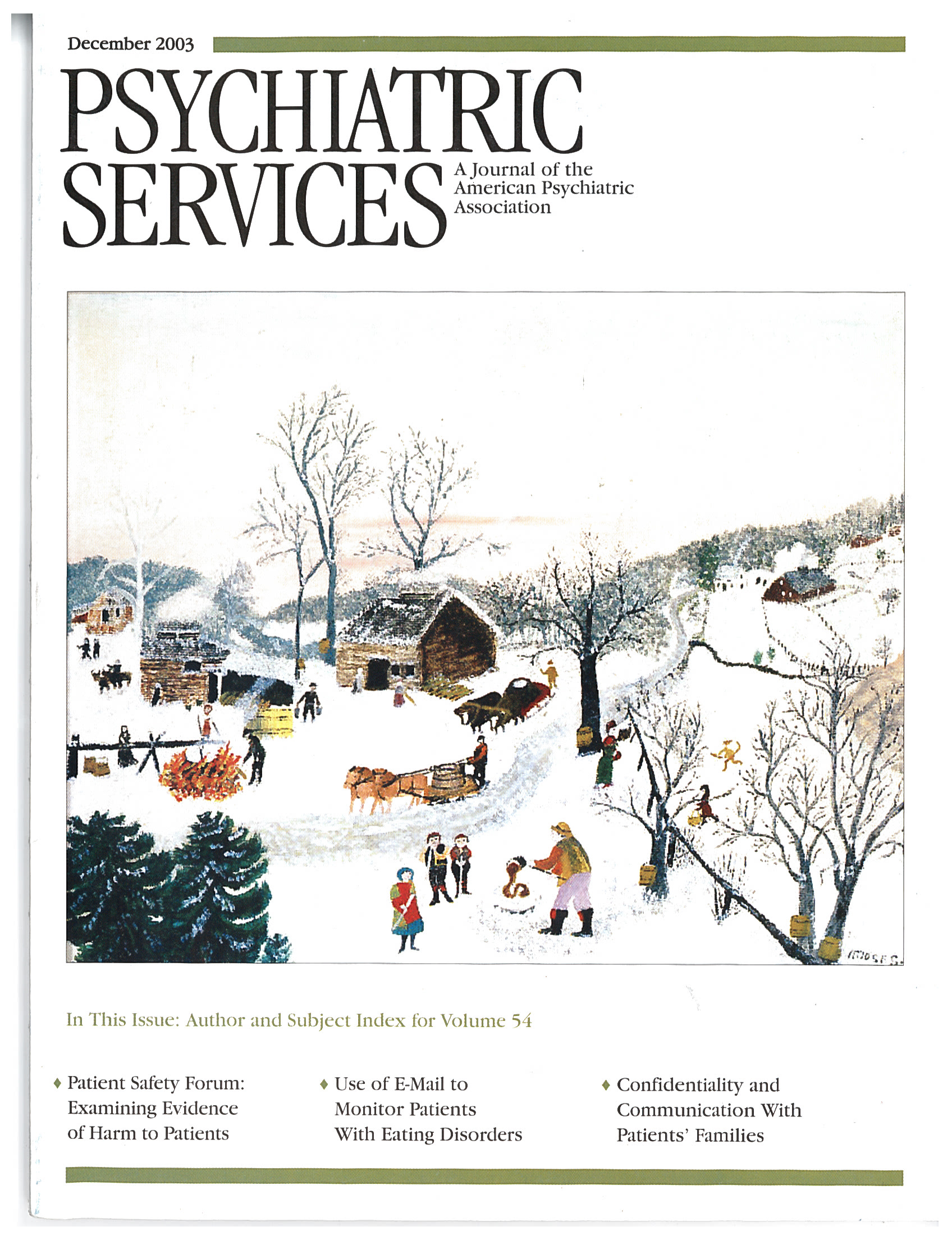New Series on Patient Safety
In this month's issue, the journal introduces the Patient Safety Forum, an occasional feature designed to focus the attention of psychiatric practitioners on the critical topic of medical error. Benjamin C. Grasso, M.D., editor of the series, will invite expert discussants to address key questions. This month four commentators address two questions. First, do we know if psychiatric inpatients are being harmed by errors? Second, what level of confidence should we have in data on the absence or presence of unintended harm? David W. Bates, M.D., M.Sc., summarizes research that his group has conducted over the past ten years on adverse drug events among inpatients. They found a high rate of such events among psychiatric patients, whose care relies heavily on medications. Miles F. Shore, M.D., then discusses aspects of the practice of psychiatry—its solitary nature, for example—that may account for psychiatry's late arrival on the medical error scene. Next, Rosemary Gibson highlights what is known about medication errors from the perspective of patients and their families and describes the need for systematic data collection. Finally, Charles Bosk, Ph.D., addresses some of the significant challenges to be overcome in creating a systems view of error in medical settings (see page 1599).
Psychiatric Impact of September 11, 2001
A sharp increase in the prevalence and severity of mental illnesses was expected in the wake of September 11, 2001. Now that two anniversaries of the terrorist attacks have passed, the data on the impact of the attacks are in. In a study reported in this issue, Robert A. Rosenheck, M.D., and Alan Fontana, Ph.D., reviewed data from a national sample of veterans with posttraumatic stress disorder (PTSD) and found that veterans admitted to specialized intensive PTSD programs of the Department of Veterans Affairs after September 11 had less severe symptoms and greater improvement in symptoms than those admitted earlier (see page 1610). In another study, Ellen M. Weissman, M.D., M.P.H., and associates found that the number of veterans treated for PTSD at Veterans Healthcare Administration facilities in New York and New Jersey after September 11 exceeded predictions based on secular trends, although causality was not established (see page 1641). In an accompanying Taking Issue piece, Sally L. Satel, M.D., draws on these results in pointing out that the populationwide psychiatric impact of the September 11 attacks was modest. By predicting a strong upturn in psychiatric problems post-September 11, says Dr. Satel, mental health professionals "sorely underestimated [the] fortitude" of New York City residents (see page 1571).
Recent Research on Telepsychiatry
Telepsychiatry is a growing field with the potential to deliver high-quality, much needed assistance to persons in need of mental health services. As a result of new developments and interest in the area of telepsychiatry, Jeannine Monnier, Ph.D., and colleagues conducted a literature review of articles published since 2000. A majority of studies found that telepsychiatry assessments can produce reliable results, that telepsychiatric services can lead to improved clinical status, and that patients and clinicians are satisfied with treatment delivered via telepsychiatry. The review also found preliminary evidence suggesting that some disorders, such as depression, can be effectively treated by using such technology. Evidence supports telepsychiatry as a cost-effective means of delivering mental health services. However, broader social issues, such as the importance of social contact, need to be considered when cost-effectiveness is evaluated (see page 1604).
Confusion About Sharing Patient Information With Families
Confidentiality laws and standards guide clinicians' decisions about releasing information from their patients' medical records. However, according to a study conducted by Tina Marshall, Ph.D., and Phyllis Solomon, Ph.D., of 59 mental health service providers and 68 consumers' families, confusion about communication between clinicians and families abounds. Many clinicians interpreted the laws as being more restrictive than even the most conservative legal interpretation. Few families understood the requirements of confidentiality policies or the types of information that are confidential. As the authors point out, the misunderstandings may prevent effective collaboration between clinicians, consumers, and families (see page 1622).
Briefly Noted…
• The Economic Grand Rounds column presents evidence from a national survey indicating that reimbursement fee structures discourage psychiatrists from providing psychotherapy (see page 1582).
• This month the journal features an expanded books section focusing exclusively on reviews of novels that psychiatrists may want to add to their holiday reading lists (see page 1652).

